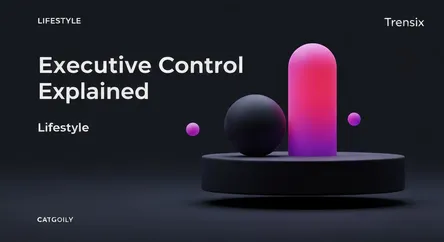Lifestyle
Executive Control Explained

Discover executive control, the mental skills that help you get things done. Learn why these cognitive functions are crucial for success at any age.
What is it?
Executive control, often used interchangeably with executive functions, is a set of cognitive processes that manage and regulate other abilities and behaviors. Think of it as the 'CEO' of your brain, located in the frontal lobes. The core functions include working memory (holding information in mind to use it), inhibitory control (resisting temptations and distractions), and cognitive flexibility (switching between tasks or thoughts). These skills work together to help you plan, focus, remember instructions, and juggle multiple demands successfully.
Why is it trending?
The concept is gaining traction beyond academic circles and into mainstream discussions about productivity, mental health, and education. There's a growing recognition that strong executive functions are a better predictor of life success than IQ. With rising awareness of conditions like ADHD and a greater focus on neurodiversity, understanding how to support and develop these cognitive skills has become a priority for parents, educators, and professionals seeking to optimize performance and well-being in a distracting world.
How does it affect people?
Executive control impacts nearly every aspect of daily life. Strong skills enable individuals to set and achieve long-term goals, manage time effectively, adapt to unexpected changes, and regulate emotional responses. Conversely, weaknesses in executive control can manifest as procrastination, disorganization, difficulty completing tasks, and impulsive behavior. In children, it's crucial for academic learning and social development, while in adults, it's fundamental to career advancement and maintaining healthy relationships.